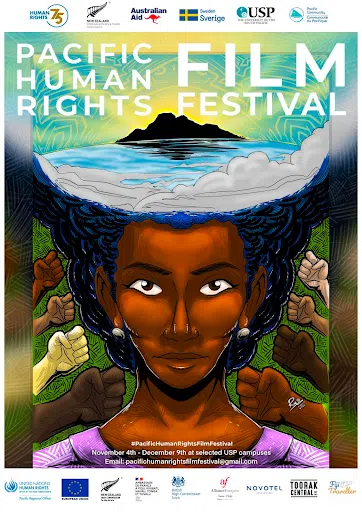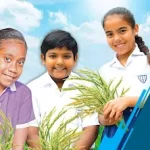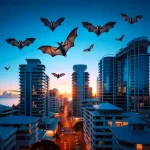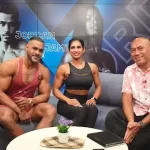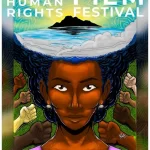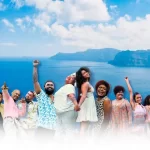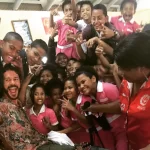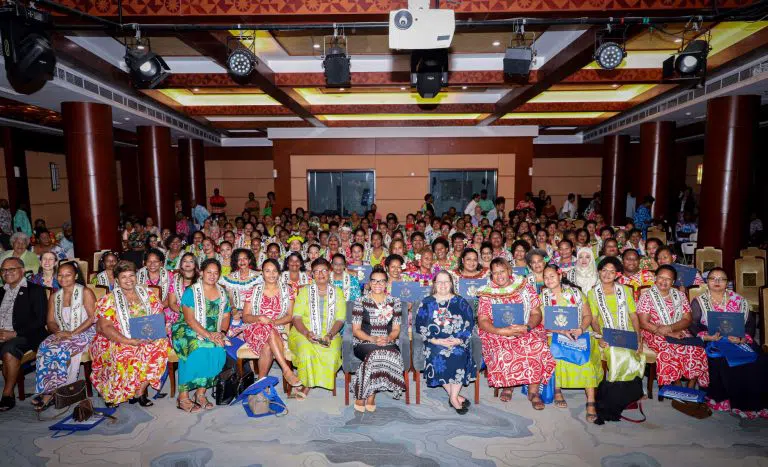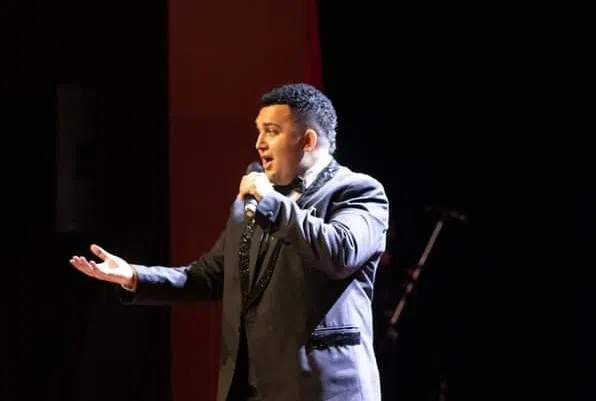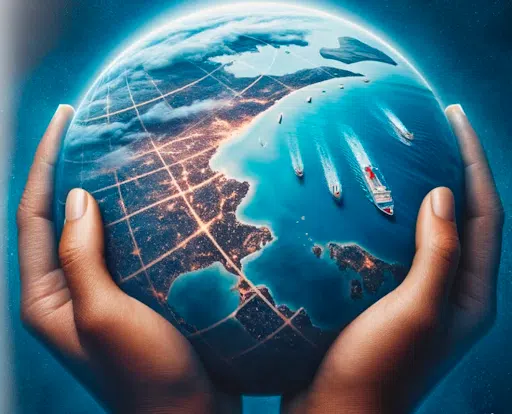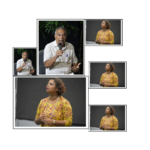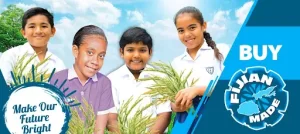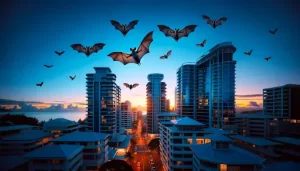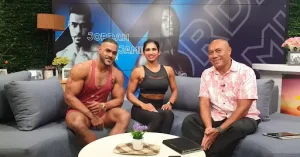Contributed by: Trina Kakyo
The Pacific Human Rights Film Festival 2023, hosted in the heart of Fiji at the University of the South Pacific, was a grand celebration of cinema with a profound purpose. This year’s festival was not just a mere showcase of films but a vibrant platform for advocating human rights, echoing the voices of the Pacific through the powerful medium of film.
 A Tapestry of Diverse Narratives
A Tapestry of Diverse Narratives
The festival kicked off with the riveting documentary “Oceans Apart: Greed, Betrayal and Pacific Island Rugby,” shedding light on the challenges in Pacific rugby.
“Oceans Apart: Greed, Betrayal and Pacific Island Rugby”
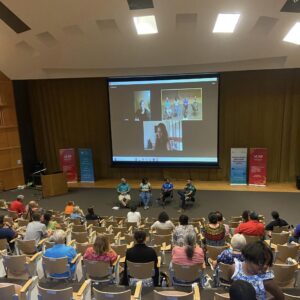
- Director/Producer: Dan Leo
- Country: Pacific Islands
- Category: Documentary/Sports
- Theme: Challenges faced by Pacific Island rugby players and issues of equity in sports.
- Synopsis: This documentary, marking the commencement of the Pacific Human Rights Film Festival 2023, delves into the struggles and exploitation faced by Pacific Island rugby players. For more information on the issues highlighted in the film and ways to support, viewers can explore Pacific Rugby Players Welfare. The insightful interview with Dan Leo, covered by Fiji Village, offers additional perspectives on the film.
- Watch Dan Leo’s interview
Continuing the theme of resilience and struggle was “Taonga: An Artist Activist,” a film portraying the life story of an artist deeply connected to his cultural roots and artistic expression.
“Taonga: An Artist Activist”
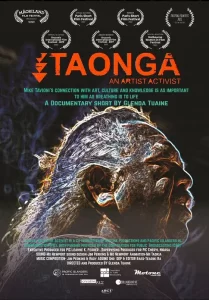
- Country: Pacific Islands
- Category: Short Documentary/Art
- Theme: Artistic expression and challenging societal norms.
Empathy and Healing Through Art
A particularly touching moment at the festival was the screening of “A Boy Called Piano,” a film exploring trauma and healing. This screening, held at the Samabula Juvenile Rehabilitation & Development Centre, highlighted the festival’s commitment to using film as a tool for social change.
A Boy Called Piano
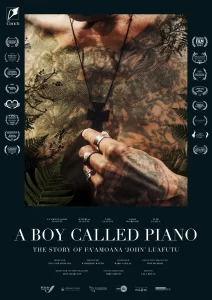
- Director/Producer: Nina Nawalowalo
- Country: Pacific Islands
- Category: Drama
- Theme: Trauma, empathy, and healing through creative expression.
Championing Human Rights and Equality
The festival also spotlighted gender-based violence through films like “Little Girls War Cry” and “Bombardées,” followed by a post-screening panel discussion that included Anne Herman, Mereseini Rakuita, Dr. Morsen Mosses, Roshika Deo, Salote Kaimacuata, and Sisi Coalala. The panel brought together voices from different spheres to discuss and shed light on the critical issue of gender-based violence, highlighting the need for awareness and action.
Films on Gender-Based Violence: “Little Girls War Cry” and “Bombardées”
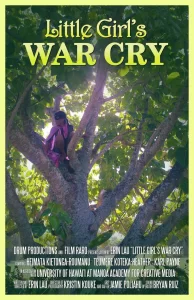
- Category: Short Films/Social Issues
- Theme: Gender-based violence and its impact.
- Synopsis: The festival featured two poignant films on gender-based violence – ‘Little Girls War Cry’ and ‘Bombardées’. These films were followed by a
International Cinema Spotlight
Bringing a global flavor to the festival, “Le Havre,” an award-winning Finnish film, made its first public screening in the Fiji Islands. Directed by Aki Kaurismäki, this film is known for its unique blend of bleak narratives and themes of love, hope, and empathy.
Le Havre
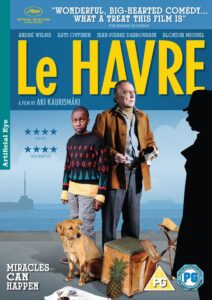
- Director/Producer: Aki Kaurismäki
- Country: Finland
- Category: Feature Film
- Theme: Love, hope, and empathy in bleak circumstances.
- Synopsis: An award-winning film that garnered the International Federation of Film Critics Prize for Best Film at the Cannes Film Festival, ‘Le Havre’ marked its first public screening in the Fiji Islands. Directed by Finnish filmmaker Aki Kaurismäki, the film is renowned for its unique and idiosyncratic style. Despite the seemingly bleak narratives, Kaurismäki’s films are underscored by themes of love, hope, and empathy.
You The Choice of My Parents” and Other Animations
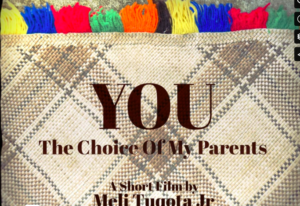
- Director/Producer: Vilsoni Hereniko, Joe Wilson, Dean Hamer, Meli Tuqota
- Country: Various
- Category: Animated Films
- Theme: Cultural narratives and personal struggles.
- Synopsis: This segment of the festival premiered a selection of animated films, including Vilsoni Hereniko’s “Sina Ma Tinirau,” Joe Wilson and Dean Hamer’s “Aikane,” and Meli Tuqota’s “You The Choice of My Parents.” These films, captivating audiences of all ages, explored a variety of themes from cultural tales to personal struggles. “You The Choice of My Parents,” in particular, based on a poem by Konai Heli Thaman, unfolds a woman’s reflections on her arranged marriage through traditional Tongan tapestries. The film artfully animates her inner turmoil and quest for identity in a changing world.
Addressing Global Challenges
The festival’s reach extended beyond the Pacific, with films like “Writing with Fire” from India, showcasing the power of journalism in the world’s largest democracy.
Writing with Fire
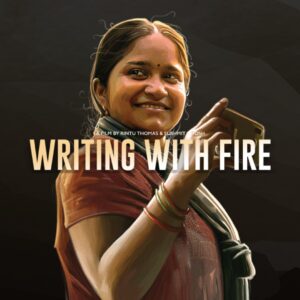
- Director/Producer: Rintu Thomas, Sushmit Ghosh
- Country: India
- Category: Documentary
- Theme: Empowerment and resilience in journalism.
- Synopsis: “Writing with Fire” follows a fearless group of journalists who run India’s only women-led news outlet. All hailing from the marginalized “untouchables” caste, these women redefine power as they transition their newspaper from print to digital, all the while championing the voices of the underrepresented. The film is a compelling narrative of determination and courage in the face of societal and institutional challenges.
“High Tide Don’t Hide” concluded the festival, focusing on the pressing issue of climate change and youth activism.
High Tide Don’t Hide
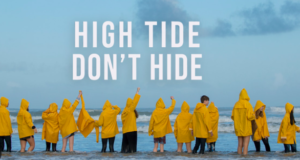
- Category: Documentary/Environment
- Theme: Youth activism and climate change.
A Resounding Success
The Pacific Human Rights Film Festival 2023 went beyond entertainment, igniting discussions, raising awareness, and inspiring action. It stands as a testament to the unyielding power of storytelling and the resilience of the human spirit.
Each film presented at the Pacific Human Rights Film Festival 2023 not only offered entertainment but also provoked thought and inspired action. These stories, drawn from various corners of the world, collectively underscored the festival’s commitment to human rights, cultural diversity, and the power of cinema as a tool for advocacy and change.
Producers and Sponsors For the Festival:


